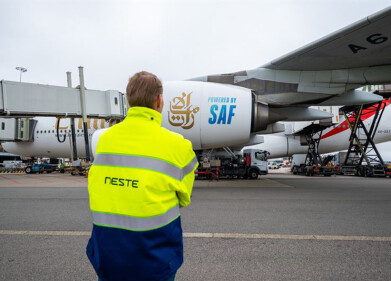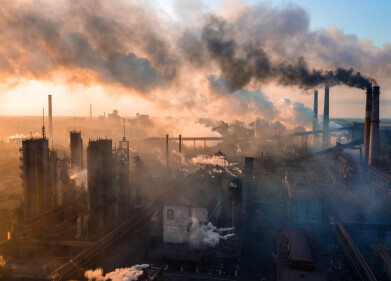Fuel for Thought
$4.2 Trillion up in the Air Due to Climate Change, Warns Report
Aug 23 2015
Climate change is an ever pressing concern for everyone on the planet. However the latest research from the Economist Intelligence Unit (EIU) has revealed that fossil fuel investors could be most at risk, with losses of $4.2 trillion on the horizon. The report was titled ‘The cost of inaction: recognising the value at risk from climate change’ and warned that the future is not looking bright for private holdings. Authors estimated that the effects of climate change could represent trillion dollar losses by 2100, even if temperature rises continue to sit at plus 2C. If the Earth’s temperature soars by 5C the losses could rise to a huge $7 trillion.
To put the definitively eye-watering $7 trillion figure into perspective, it tops the total current market capitalisation of the London Stock Exchange. The $4.2 trillion estimate is just as alarmingly, equating to the total value of the world’s publicly listed oil and gas companies, or Japan’s annual gross domestic product.
EIU gets serious
With Paris set to host critical climate change talks, the EIU is urging key decision makers to think about the devastating effect global warming will have on both the environment, and the economy. As part of its report it called on financial regulators to develop an in-depth understanding of the “systematic environmental risk” associated with global warming. Authors also pushed for the establishment of a proper carbon price as part of the hard line new climate change treaty set to be drawn up in Paris.
Brian Gardner, editor of the EIU report asserts that the outlook isn't looking good. “Investors currently face a stark choice. Either they will experience impairments to their holdings in fossil fuel companies should robust regulatory action on climate change take place, or they will face substantial losses across the entire portfolio of manageable assets should little mitigation be forthcoming,” he says.
Nick Robins, co-director of the Inquiry into the Design of a Sustainable Financial System at the UN Environment Programme has accused financial markets of not taking the risk seriously, explaining that “We wouldn’t get on a plane if there was a 5% chance of the plane crashing. But we’re treating the climate with that same level of risk in a very offhand, complacent way.”
What’s the solution?
So how can investors reduce the risk of catastrophic losses? The EIU suggests investing in projects that support the emergence of a lower carbon economy, as well as calculating the carbon footprints of investment portfolios and aiming to reduce emissions.
LNG has emerged as a lucrative investment option for private holders in search of alternatives to risky oil and gas projects. The article ‘Accurately Measuring LNG Tanker Boil-Off Gas for Process Efficiency & Environmental Compliance’ looks at the recent increase in LNG transport and how it has driven the need for the expansion of tanker fleet capacity. This increases boil-off gas (BOG) emissions which goes hand in hand with the need to accurately measure flow in order to comply with current marine propulsion regulations for energy efficiency.
Digital Edition
PIN 25.1 Feb/March
March 2024
In This Edition Safety - The technology behind the ION Science Tiger XT - Safety with ammonia and LOHCs as hydrogen carriers Analytical Instrumentation - Discussion on new tribology te...
View all digital editions
Events
Apr 28 2024 Montreal, Quebec, Canada
Apr 30 2024 Birmingham, UK
May 03 2024 Seoul, South Korea
May 05 2024 Seville, Spain
May 06 2024 Riyadh, Saudi Arabia


















